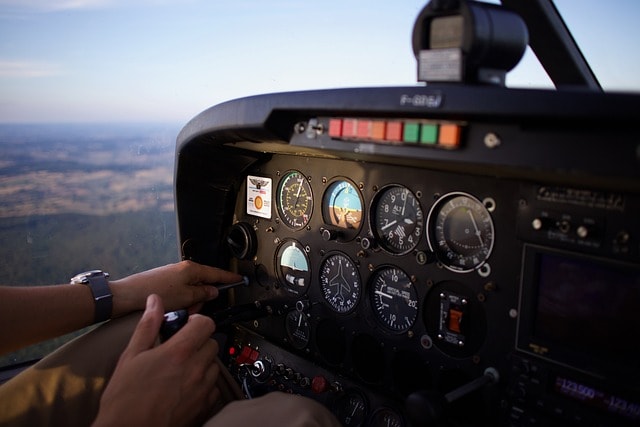Can You Safely Fly on Lexapro? Understanding FAA Guidelines for Pilots
Pilots play a critical role in ensuring the safety of passengers, crew, and safety and flight operations. But when faced with mental health concerns like major depressive disorder or anxiety, they may require medications such as Lexapro (Escitalopram). This raises questions about whether one can safely fly on Lexapro and the associated FAA guidelines for aviation mental health concerns.

Understanding Lexapro and Its Effects
Lexapro belongs to a class of medications called selective serotonin reuptake inhibitors (SSRIs), designed to treat anxiety and major depressive disorder. These serotonin reuptake inhibitors work by boosting serotonin levels in the brain, alleviating depressive symptoms and promoting emotional stability.
However, SSRIs, including Lexapro, can have side effects such as drowsiness, dizziness, or difficulty concentrating. For pilots, these side effects could impact their ability to ensure safety in flight operations. Recognizing these risks, the FAA has developed a medical certification process to address pilot mental health concerns while maintaining high standards for aeromedical performance.
FAA Guidelines for Pilots with Mental Health Concerns
The FAA has introduced a conditional approval process that allows pilots to fly while taking certain antidepressant medications, including Lexapro. This process involves obtaining a Special Issuance Medical Certificate for airman medical certification, ensuring that the pilot’s mental health and aeromedical performance meet safety requirements.
Steps in the Medical Certification Process
Medical Documentation Pilots must submit documentation to an Aviation Medical Examiner (AME) detailing their underlying medical condition, more treatment methods, and any prescribed medications. The FAA emphasizes the importance of demonstrating stability and the absence of harmful side effects.
Special Issuance Medical Certification Pilots are required to show six months of stability on medications like Lexapro. This period allows the FAA to evaluate potential side effects and ensure pilots can perform their duties without causing harmful risks.
Aerospace Medicine Review The FAA’s Office of Aerospace Medicine individually reviews each case, considering the pilot’s mental health history and treatment outcomes. This ensures a comprehensive assessment of their ability to safely operate an aircraft.
The Role of Aviation Medical Examiners
Aviation Medical Examiners play a pivotal role in the medical certification process. They assess pilots taking medications, including SSRIs and norepinephrine reuptake inhibitors, to determine their eligibility for flight operations. AMEs must ensure that the pilot’s condition and treatment align with FAA standards.
Pilots taking antidepressant medications must maintain open communication with their AME, providing updates on treatment progress and compliance with FAA regulations.

FAA’s Policies on Newly Added Medications
The FAA recently expanded its list of approved medications for pilots, including extended-release bupropion. This positive step reflects the FAA’s commitment to addressing aviation mental health concerns and allowing pilots to seek treatment without jeopardizing their careers.
The FAA continues implementing new conditional approvals for medications based on industry input and aeromedical performance studies. These changes aim to provide greater understanding and support for pilots managing mental health concerns.
Key Considerations for Pilots Taking Lexapro
Can You Fly a Plane on Lexapro?
Yes, with proper FAA certification, pilots can safely fly on Lexapro. The conditional acceptance process ensures pilots meet all safety requirements.Can You Fly While on Antidepressants?
The FAA allows pilots to use specific antidepressant medications, including Lexapro, provided they meet medical certification criteria.What Shouldn’t You Do on Lexapro?
Pilots must avoid flying without FAA approval and should refrain from operating aircraft if experiencing any side effects that could impair performance.Does Lexapro Show Up on Drug Screens?
While Lexapro is not typically detected in standard drug screens, pilots must disclose its use to their AME.

Conclusion: A Positive Step for Aviation Mental Health
The FAA’s approach to antidepressant use among pilots, including its recent addition of new medications and policies, represents a significant shift toward supporting mental health in aviation. With the help of Aviation Medical Examiners and the FAA’s Office of Aerospace Medicine, pilots can address mental health concerns while maintaining safety in the skies. By continuing to adapt its guidelines, the FAA fosters a culture of transparency, safety, and understanding in the aviation industry.
FAQ's
Yes, pilots can fly while taking Lexapro, but only under specific FAA guidelines. Pilots must go through a Special Issuance Medical Certification process, demonstrating stability on the medication for at least six months. This process includes submitting detailed medical documentation, a report from their treating physician, and passing an evaluation by an Aviation Medical Examiner (AME). The FAA ensures that any potential side effects of Lexapro, such as drowsiness or impaired concentration, do not impact the pilot’s ability to ensure safety during flight operations.
The FAA allows conditional approval for certain antidepressant medications, including Lexapro, as part of its commitment to addressing pilot mental health concerns. Pilots using selective serotonin reuptake inhibitors (SSRIs) must demonstrate symptom stability and provide evidence of safe aeromedical performance. The FAA’s Office of Aerospace Medicine reviews applications on a case-by-case basis, considering the pilot’s mental health history, underlying medical condition, and treatment outcomes. This policy is part of the FAA’s effort to reduce stigma and support pilots managing mental health challenges.
An Aviation Medical Examiner is critical in evaluating whether pilots taking antidepressant medications like Lexapro are fit to fly. AMEs assess the pilot’s mental health status, medication use, and overall ability to perform flight operations safely. They review medical records, treatment methods, and compliance with FAA standards. AMEs also act as intermediaries between the pilot and the FAA, helping ensure the pilot meets all criteria for a Special Issuance Medical Certificate and adheres to the FAA’s rigorous safety requirements.
If a pilot experiences side effects, such as drowsiness, dizziness, or impaired focus, they must immediately report these to their Aviation Medical Examiner. The FAA prioritizes safety in flight operations, so side effects could temporarily disqualify a pilot from flying until they are resolved. Pilots must remain on a stable dosage of Lexapro and demonstrate no harmful effects for six months before resuming flight duties. This ensures both the safety of the pilot and passengers and compliance with FAA regulations.




